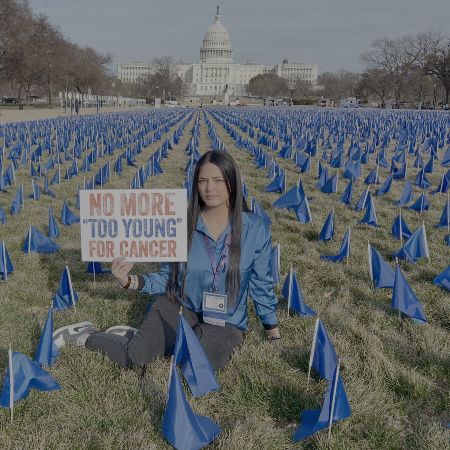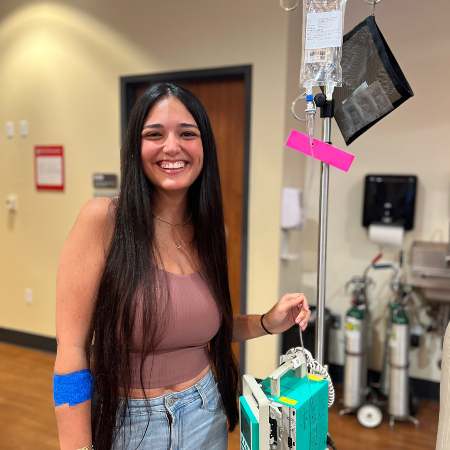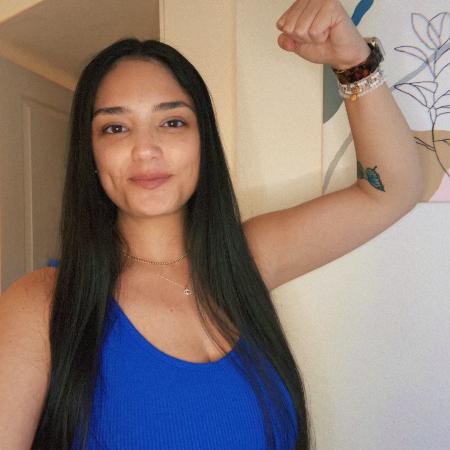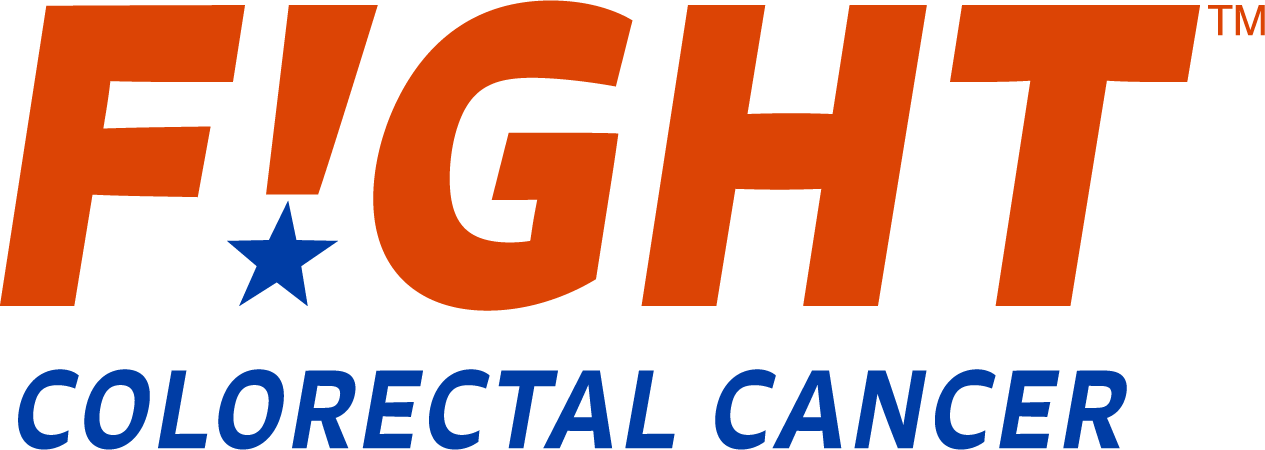
Jessica Acosta
Patient/Survivor
Rectal
Age at Diagnosis: 29
"You aren’t alone at any point in your journey. This community has been one of the most impactful and uplifting things on my journey and it can be the same for you. There will be good and bad days, but there is someone who understands and can listen."
My name is Jessica (she/her), and I was diagnosed with rectal cancer at 29 years old. In February 2023, I had genetic testing done that showed a gene mutation called Lynch Syndrome (PMS2). The genetic counselor recommended that I get my first colonoscopy at 30. But in the summer of 2023, I began experiencing symptoms. I saw my primary doctor and she said she thought it was IBS, but that I could go see a gastro. I vividly remember ending the video call and saying “at least she doesn’t think it’s cancer” out loud. By the time I saw the gastro in November, my symptoms had worsened significantly, and I knew that something wasn’t right. At the appointment, she also said she thought it could be IBS – even though I was having symptoms like constipation and blood in my stool, and knowing I had Lynch. I pushed back and requested that a baseline colonoscopy be done to make sure. The gastro did my colonoscopy in January 2024 and found a 6cm mass in my rectum. Her response when showing me the images was “at least we did this early!”
Because of the Lynch Syndrome, my mass had the mismatch repair-deficient biomarker. This changed everything I thought cancer would look like for me. Instead of chemo, radiation, and surgery, the guidelines recommended 6 months of immunotherapy. My oncologist in California followed the clinical trial done at Memorial Sloan Kettering in New York City that had a 100% success rate using the drug Jemperli (dostarlamab). After just 3 months of infusions, my mass was gone. We finished out the remaining infusions and I was declared NED in September 2024.
Immunotherapy challenged everything I ever thought cancer could be. While I may live with the lingering fear of my body not protecting me because of the Lynch Syndrome, I also live with the goal to flip other people’s ideas of how cancer should look. Cancer has taught me many things, but there’s one thing that has become so important that I have made it my personal mission… empowering young adults to advocate for themselves in the medical space.



